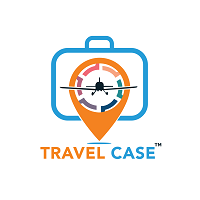Traveling is an incredible experience that can broaden your horizons and create unforgettable memories. However, it’s important to be aware of the potential risks involved when booking international travel packages. Scammers often prey on unsuspecting travelers, using various tactics to steal money, personal information, or valuables. In this post, we'll take a look at 14 major travel scams to avoid so that you can enjoy your trip with peace of mind.
1. Fake travel websites:
Scammers create fake travel websites that mimic legitimate ones in order to trick people into booking their travel packages. Always double-check the website’s URL and look for reviews before making a purchase.
2. Email scams:
Be wary of unsolicited emails that offer deals that seem too good to be true. Never give out personal or financial information in an email.
3. Hotel scams:
Scammers may call your hotel room posing as hotel staff and ask for your credit card information. Always verify with the front desk before giving out any information.
4. Taxi scams:
Some taxi drivers will overcharge tourists or take a longer route to increase the fare. Research local transportation options ahead of time and agree on a price before getting in a taxi.
5. Fake ticket scams:
Scammers sell fake tickets to popular attractions, concerts, or events. Always purchase tickets from official vendors or authorized resellers.
6. ATM scams:
Skimmers and other devices can be attached to ATMs to steal your credit card information. Only use ATMs located in secure, well-lit areas.
7. Rental car scams:
Scammers may charge additional fees for “damage” that was already present before you rented the car. Always inspect the car before driving it and take pictures of any existing damage.
8. Travel insurance scams:
Be cautious of offers for travel insurance that are too cheap or promise full coverage without any exclusions. Read the policy carefully and make sure it covers the specific risks you're concerned about.
9. Wi-Fi scams:
Public Wi-Fi networks may be unsecured, allowing hackers to intercept your personal information. Use a virtual private network (VPN) when connecting to public Wi-Fi.
10. Currency exchange scams:
Be wary of currency exchange services that offer rates that are too good to be true. Always exchange money at reputable banks or exchange bureaus.
11. Pick-pocketing:
Keep your valuables close and be aware of your surroundings in crowded areas.
12. Fake customs officials:
Scammers may pose as customs officials and ask for bribes or fees. Always ask for identification and verify with local authorities before paying anything.
13. Vacation rental scams:
Scammers may advertise fake vacation rentals or ask for payment upfront without providing any information. Always research the property and owner before making a payment.
14. Fake travel guides:
Be cautious of people who approach you claiming to be tour guides or offering unsolicited advice. Always book tours and guides through reputable companies.
Conclusion:
when booking international travel packages, it's essential to be cautious and aware of potential scams. By following these tips and using common sense, you can avoid falling victim to scammers and enjoy a safe and memorable trip.







![21 Day's Coronavirus lockdown in India [ Covid-19 ] - Travel Case](https://blogger.googleusercontent.com/img/b/R29vZ2xl/AVvXsEjoWDJ5uOdYXgSYro1ls0BRinhou8NodJV_Xn-pylpaLARklNEML9bZEbOU5Bmx3gcUOpxWUzuGVcOfmfmirwKsXWzRXRyJfUcKHO_D1ZwAhDTXhP_KugyLLyaxWI_QW6oWud3Rews4f3Q/w100/w1240-p16x9-2020_03_25+india+under+lockdown.jpg)


![All You Need to Know About How to Travel During Coronavirus [ Covid - 19 ]](https://blogger.googleusercontent.com/img/b/R29vZ2xl/AVvXsEhvrwRnwQu_wGK1MdI8x3fQNydbQRdKkUpCJRog1NOl8P1FnV_X9_MjXl7wRnqZ-2OmXGErqI-chnXQnSFmHPC8YgM8D2AJjFyWjla5FfQUbGgyAiQ5F2R99XugNXVHEO5L6jKP_ZYsVpg/w100/p084ndkl.jpg)

0 Comments